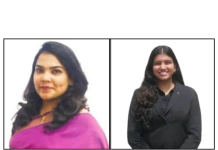[About Author: The author, Dr. G.R. Raghavender is an Intellectual Property law and Technology Expert, Senior Consultant in Department for Promotion of Industry and Internal Trade (DPIIT), Ministry of Commerce and Industry and retired Joint Secretary, Government of India; Former Registrar of Copyrights. Views are personal.]
The World Book and Copyright Day 23 April is a symbolic date in world literature. On this day UNESCO’s General Conference, held in Paris in 1995, to pay a world-wide tribute to books and authors, encouraging everyone to access books. Although World Book and Copyright Day is also known as the World Book Day, was officially inaugurated in 1995, its conception is traceable to Spanish writer, Vicente Clavel Andres, who conceived the idea in 1922. He developed the holiday to pay tribute to the notable author, Miguel de Cervantes. Because Cervantes was born on October 7, World Book Day was celebrated for the first time on October 7, 1926.
However, the celebration traces its origins to La Diada de Sant Jordi (the Festival of St. George), Catalunya’s version of Valentine’s Day, during which people traditionally exchange red roses and books. This one-day festival, held annually on April 23, is inspired by the legend of Saint George, who has been the patron saint of Catalunya since 1456. In 1930, King Alfonso XIII of Spain officially designated April 23 as the date of celebration, aligning it with the death anniversary of Miguel de Cervantes. In Catalonia, the holiday gained significant popularity, not only because of its association with Saint Jordi but also due to the tradition of gift-giving—books and roses became the standard, especially after the Barcelona Book Fair in 1931.
Interestingly, April 23 also marks the death anniversaries of William Shakespeare and Inca Garcilaso de la Vega. These literary coincidences contributed to UNESCO’s decision to declare April 23 as World Book and Copyright Day in 1995, honouring global literature and promoting the joy of reading.
Purpose:
The UNESCO suggests that, ‘Through reading and celebrating World Book and Copyright Day, on April 23, we can open up to others despite the distance, and travel thanks to the imagination. This day pays homage to books and authors and promotes access to reading for as many people as possible.’
On this occasion, worldwide tribute is given to books and authors, as well as to encourage people to discover the pleasure of reading. This will generate respect for those who have made irreplaceable contributions to social and cultural progress. People are encouraged to either purchase a book to read or donate one to others in celebration of this day.
Theme for World Book and Copyright Day 2025:
The theme for World Book and Copyright Day 2025 is “The role of literature in achieving the Sustainable Development Goals (SDGs)”. This theme highlights how books and reading can contribute to a better world, influencing positive change and fostering a deeper understanding of global challenges and solutions.
The Sustainable Development Goals (SDGs), introduced by the United Nations in 2015, consist of 17 interconnected objectives designed to eradicate poverty, protect the environment, and ensure global prosperity by 2030. Among them, SDG 4: Quality Education plays a crucial role in advancing inclusive and equitable learning opportunities, fostering lifelong education, and driving social and economic progress. Education is central to achieving gender equality, reducing disparities, and promoting sustainable development. By improving literacy rates, ensuring universal primary and secondary education, and enhancing skill-building programs for all age groups, nations can take significant strides toward these global goals.
National Education Policy (NEP) 2020 and SDGs:
India’s National Education Policy (NEP) 2020 is closely aligned with the principles of the SDGs, particularly SDG 4. This policy envisions a dynamic, holistic, and multidisciplinary education system aimed at establishing India as a knowledge-driven powerhouse. NEP 2020 prioritizes equal access to quality education, regardless of socioeconomic status, and places emphasis on foundational literacy, early childhood education, vocational training, and teacher development. By promoting inclusive learning, digital education, and sustainable educational practices, India strengthens its commitment to achieving the SDGs through transformative reforms and empowerment initiatives.
In addition to the overall theme, World Book and Copyright Day 2025 also focuses on the theme “Read Your Way,” inspiring readers to explore diverse genres and connect with books that resonate with them. This initiative fosters a love for reading, encourages discovery, and empowers children to choose books independently.
World Book Capital 2025
To sustain global literary celebrations, UNESCO, alongside organizations representing publishers, booksellers, and libraries, selects a World Book Capital (WBC) each year. For 2025, Rio de Janeiro, Brazil has been honoured with this title, recognizing its dedication to literature, sustainable publishing, and fostering reading habits among youth, particularly through digital technology.
AI, Copyright, and the Future of Publishing:
The emergence of sophisticated AI algorithms, particularly large language models (LLMs), has brought forth a critical concern for the publishing industry. Some of the popular LLM models created by Open AI’s ChatGPT, Microsoft’s Copilot, Google’s Gemini and the recently emerged DeepSeek are indulging in the unauthorized “scraping” of copyrighted literary works to serve as training data. This practice often conducted without the explicit consent of copyright holders and without giving any compensation to them, raises significant questions about infringement of copyright in books.
The potential for AI systems to utilize and even replicate creative content without proper attribution is challenging the moral rights of the author and such acts are tantamount to plagiarism. PatronusAI, the leading AI evaluation and optimisation company, has recently identified in its survey significant instances of plagiarism by large language models (LLMs). In their research, they developed an adversarial test set to evaluate how often LLMs reproduce copyrighted content. The findings revealed that state-of-the-art models frequently generate exact reproductions of copyrighted material. As the legal framework surrounding the use of copyrighted material for AI training remains contested and under development, publishers are beginning to explore ways to protect their copyright from such unauthorized exploitation.
While many countries have established text and data mining (TDM) exceptions for education and research, they have deliberately excluded commercial use to protect copyrights of authors and publishers. However, recent legislative proposals in the UK seeking to extend these exceptions to AI companies have sparked intense criticism, with strong opposition from content creators and rights holders who argue that such measures weaken consent and copyright safeguards. At the same time, AI companies have expressed their disapproval of the proposed opt-out mechanism for authors and publishers, adding to the ongoing debate over balancing innovation and copyright protection.
The issue of infringement of copyright of authors and publishers and AI training has become a pivotal debate in the publishing industries. Authors and publishers argue that their works, often the result of years of effort and intellectual creativity, should not be used to train AI models without explicit consent. This concern is amplified as AI-generated content increasingly competes with original human-created works, raising ethical and financial implications. The principle of requiring authorization and fair compensation for using copyrighted material is central to this discourse, ensuring that creators retain control over their intellectual property and receive due recognition for their contributions. Without proper licensing agreements, AI companies risk undermining the value of copyrighted works, potentially disrupting the livelihoods of writers and publishers.
Recognizing these concerns, organizations such as the Reprographic Rights Organizations, which are copyright societies, affiliated with the International Federation of Reproduction Rights Organizations (IFFRO) have been vocal in demanding that AI companies seek formal licenses and pay royalties for the use of copyrighted content. Legal battles have already begun to unfold, with prominent cases such as The New York Times’ lawsuit against OpenAI and other AI firms in the United States, joined by similar legal actions from author societies and major book publishers. Similarly, in India, the news agency ANI has filed a case against OpenAI, both challenging the unauthorized use of copyrighted content for AI training purposes.
These lawsuits highlight growing resistance from content creators and publishing houses against AI firms using their works without consent. As the debate intensifies, regulatory discussions are gaining momentum globally, with policymakers exploring frameworks that balance technological innovation with the protection of intellectual property rights. This ongoing battle is likely to shape the future of AI training practices and copyright enforcement in the digital age.
Amidst the ongoing legal debates and discussions, Penguin Random House appears to be the first major publisher to update its copyright pages to reflect these new concerns. This proactive step involves the inclusion of specific warnings or statements intended to deter the scraping of their books by AI algorithms without permission. By explicitly addressing this issue within the legal notices of their publications, the book publishers are signaling their intent to vigorously defend the copyright of their authors and the integrity of the published works. This move could potentially set a precedent for other publishers grappling with similar concerns in the evolving landscape of AI technology.
Balancing innovation and copyright in the AI era requires a thoughtful approach that fosters technological progress while safeguarding the rights of authors and publishers. AI-driven advancements, particularly in content generation, offer immense potential for efficiency and creativity, yet they must not come at the cost of intellectual property protection. A fair and transparent framework is essential that ensures AI companies obtain proper licensing agreements, compensate content creators, maintain transparency and uphold ethical standards in copyrighted content usage. By striking this balance, innovation can thrive without undermining the value of original copyrighted works, allowing AI to enhance, rather than exploit, human creativity. Governments, industry stakeholders, and legal experts must collaborate to establish policies that support both AI-driven innovation and growth and the rightful claims of authors and publishers, ensuring a sustainable and equitable digital landscape.
As we celebrate World Book and Copyright Day 2025 on 23rd April, it is essential to reaffirm the enduring power of literature in shaping minds, building inclusive cultural societies, and driving progress toward the Sustainable Development Goals. In an age increasingly influenced by artificial intelligence, the written word remains a cornerstone of human expression and intellectual freedom. By protecting authors’ rights, promoting equitable access to books, and fostering a culture of reading, we ensure that literature continues to inspire innovation, nurture empathy, and contribute meaningfully to a more just, informed, and sustainable world.












